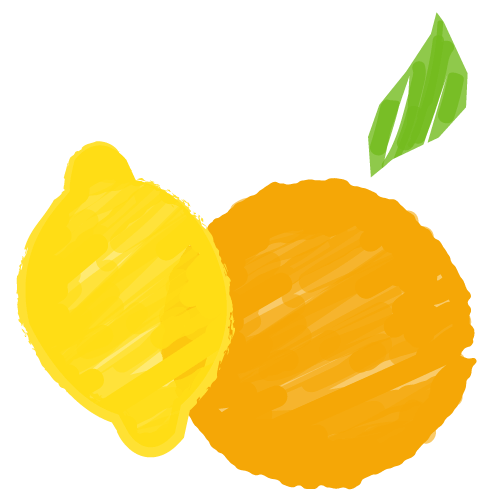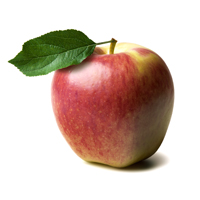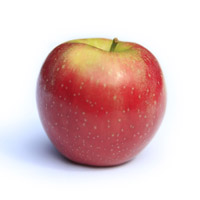There's an apple renaissance underway, an ever-expanding array of colors and tastes in the apple section of supermarkets and farmers markets.
Less visible is the economic machinery that's helping to drive this revolution. An increasing number of these new apples are "club apples" — varieties that are not just patented, but also trademarked and controlled in such a way that only a select "club" of farmers can sell them.
Apples in the Club
Ambrosia
- Developed by: Seedling found in British Columbia
- Grown in: Across Canada. Also in Washington state, Chile, Europe, New Zealand
- Who can grow it: Growers licensed by Summerland Varieties Corp.
- Tasting notes: Sweet, crisp, light
- Production: More than a million trees
Autumn Glory
- Developed by: Bred in Washington state
- Grown in: Washington state
- Who can grow it: Domex Superfresh Growers
- Tasting notes: Crunchy, sweet, cinnamon
- Production: 56,000 trees
Cosmic Crisp
- Developed by: Washington State University
- Grown in: Washington state (not for sale until 2017)
- Who can grow it: Growers in Washington state
- Tasting notes: Crisp, juicy, sweet-tart
- Production: None so far. First commercial trees are due to be planted in 2017 (300,000 trees)
- Footnotes: Cosmic Crisp is a brand, not an apple variety. The apples are from a variety called WA 38.
Envy
- Developed by: ENZA, New Zealand
- Grown in: Washington, New Zealand, Chile
- Who can grow it: Growers affiliated with ENZA
- Tasting notes: Smooth, sweet, aromatic
- Production: 797,000 trees; 1.2 million trees on order
EverCrisp
- Developed by: Midwestern Apple Improvement Association
- Grown in: Growers in a dozen states, mostly in the East
- Who can grow it: Any member of Midwestern Apple Improvement Association
- Tasting notes: Sweet, crisp
- Production: 30,000 trees planted. 600,000 ordered.
Jazz
- Developed by: ENZA, New Zealand
- Grown in: Chile, New Zealand, Washington state in the U.S.
- Who can grow it: Growers affiliated with ENZA
- Tasting notes: Snappy, tangy, sweet
- Production: 1.8 million trees
Kanzi
- Developed by: Belgium
- Grown in: Michigan and Washington state
- Who can grow it: Growers affiliated with Columbia Marketing International
- Tasting notes: Sweet, tart, crunchy
- Production: Undisclosed. Relatively small production so far in the U.S.
KIKU
- Developed by: Brand created by Italian company
- Grown in: Europe, New Zealand, Michigan, Pennsylvania, Washington state
- Who can grow it: In U.S., growers affiliated with Columbia Marketing International
- Tasting notes: Super sweet, crunchy, juicy
- Production: Undisclosed. Relatively small production so far in the U.S.
- Footnotes: KIKU is a brand, not an apple variety. The apples are from an open variety called Fuji Brak.
Lady Alice
- Developed by: Seedling found in Washington state
- Grown in: Washington state
- Who can grow it: A few growers affiliated with Rainier Fruit Co.
- Tasting notes: Sweet-tart, crisp
- Production: 300 acres, or roughly 300,000 trees
Opal
- Developed by: Czech Republic
- Grown in: Many countries
- Who can grow it: In the U.S., only Broetje Orchards in Washington state
- Tasting notes: Sweet, tangy, crunchy
- Production: A million trees in the U.S.
- Footnotes: This apple is said to resist browning.
Pacific Rose
- Developed by: ENZA, New Zealand
- Grown in: Mostly Washington state, although also grown in small numbers in New Zealand
- Who can grow it: Growers affiliated with ENZA
- Tasting notes: Crisp, clean, sweet
- Production: 722,000 trees
Pinata
- Developed by: Germany
- Grown in: Europe, Washington, Minnesota
- Who can grow it: Stemilt Growers in Washington state and Dennis Courtier in Minnesota
- Tasting notes: Tropical, crisp, sweet and tart
- Production: 375 acres in production, or at least 375,000 trees
RubyFrost
- Developed by: Cornell University
- Grown in: New York state (not yet for sale)
- Who can grow it: Apple growers in New York
- Tasting notes: Crisp, sweet-tart
- Production: About 200,000 planted, another 200,000 ordered
SnapDragon
- Developed by: Cornell University
- Grown in: New York state
- Who can grow it: Apple growers in New York
- Tasting notes: Crunchy, sweet
- Production: About 300,000 planted, another 250,000 ordered
Sonya
- Developed by: New Zealand
- Grown in: Washington state
- Who can grow it: Three growers in Washington's Yakima Valley
- Tasting notes: Sweet and crunchy
- Production: 150,000 trees
SweeTango
- Developed by: University of Minnesota
- Grown in: Washington, New York, Michigan
- Who can grow it: Members of Next Big Thing fruit-growing cooperative
- Tasting notes: Crisp, sweet, touch of citrus
- Production: 800,000 trees
Source: Photos courtesy their various growers.
Credit: Meredith Rizzo, Alyson Hurt, Eliza Barclay and Dan Charles / NPR
















